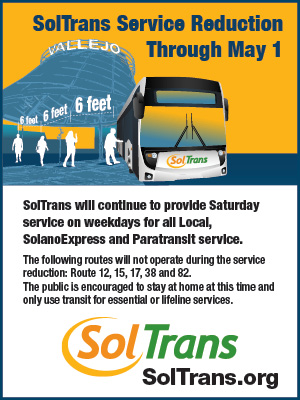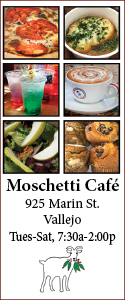While out browsing the booths at the Vallejo Farmer’s Market or the Napa-Vallejo Flea Market, one can find graduate students in white coats providing free medical services like blood pressure checks or health screenings. These future healthcare professionals at Touro University California (TUC) go out to apply the skills that they are learning in the classroom to increase access to care in the North Bay Area, especially for those who are underserved. Two of the most direct avenues to seek out these free health services from TUC are the Student-Run Free Clinic (SRFC) and the Mobile Diabetes Education Center (MOBEC).
The SRFC in South Vallejo is run and directed by student volunteers in fields like osteopathic medicine, pharmacy, physician assistant studies, and nursing. With the supervision of precepting doctors and pharmacists, the students bring an interprofessional range of experience directly into the community. In just the past year, the clinic has seen a 64% increase in volunteer hours and a 60% increase in scheduled patient visits.
The students at the clinic address a wide range of issues. Some come in with chronic pain due to old injuries, such as back pain or difficulty walking. After going over a patient’s history, students can perform Osteopathic Manipulative Treatment, which is the realignment of the body to assist its own pathways to health. Most patients with chronic issues end up using far less medication and become more functional because they’re having the treatment done on a regular basis, says Gail Feinberg, DO, Clinical Director of the SRFC.
“These students work together to pick up where a busy primary care provider leaves off,” says Dr. Feinberg. “At the clinic, they put in the time to address the patient’s other barriers to health without having to do anything physically to them.”
With new sponsorship from Kaiser Permanente, the SRFC also offers additional flu vaccinations and diabetes A1-C tests. Patients can have their medications overviewed by student doctors of pharmacy, receiving education and recommendations on alternative options catered to the patient’s own needs. College of Pharmacy students also help patients sort through and fill out time-consuming forms to apply for patient assistant programs for prescription medications.
“I love seeing patients come back so proud and making positive changes for their health,” said Leslie Wu, PharmD candidate of 2021. “It is extremely motivating to know that the team was able to make a difference for even one patient.”
Out on the MOBEC, students bring FREE diabetes screening and education to the people of Solano County. Made possible through a generous gift from Sutter Health Foundation, the state-of-the-art MOBEC is designed to break the barrier between healthcare providers and those in the community for the prevention of diabetes. It also reaches out to those who may not otherwise have adequate access to healthcare.
Approaching its third year of service, the MOBEC has seen more than 3,800 visitors and administered over 2,000 blood glucose screenings. Interacting one-on-one with those in the community, future health professionals and public health practitioners assess the visitor’s risk factors for diabetes and provide diabetes screenings—both blood glucose and A1C. Students also give individualized counseling regarding lifestyle modifications, nutrition, medication education, and exercise education.
“Their presence has been just such a bonus for the people who can’t afford health care on a regular basis,” stressed Benjamin Buggs, Founder of Faith Food Fridays in Vallejo.
By reaching out to people in the communities where they live, the MOBEC aims to bring greater community awareness to diabetes and pre-diabetes, which affects 55% of Californians. The longer that diabetes goes untreated, the harder it is to control, so early detection is key.
“Diabetes is a progressive disease that marches forward whether we go with it or not. But it’s a disease that can be controlled if we’re aggressive with it,” stressed Dr. Shubrook, Professor and Diabetologist at TUC’s College of Osteopathic Medicine. “You can live a normal life with type 2 diabetes. It requires proactive aggressive management, and knowing your status is the first step of it.”















































